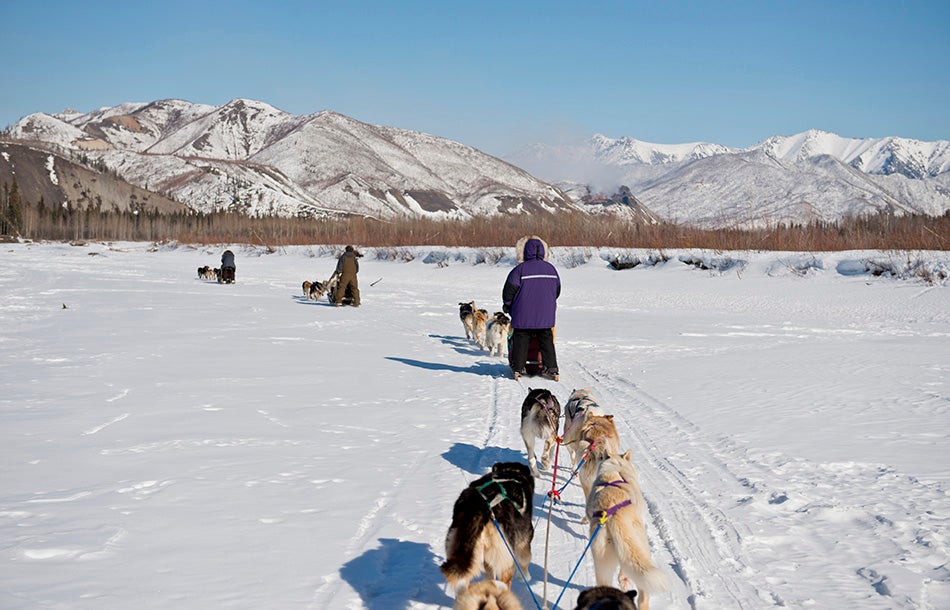Researchers partner with Native Alaskan, Yukon communities to study climate impacts on rivers, fish
NCAR providing regional climate modeling expertise
Sep 19, 2019 - by Staff
Sep 19, 2019 - by Staff

Mushers travel on the Yukon River in winter. The river is a lifeline to communities in the community, who use it as a primary winter transportation corridor. Earlier breakup of the river ice threatens to isolate local communities. (Image: NPS/Josh Spice)
Researchers at the University of Colorado (CU) Boulder and the National Center for Atmospheric Research (NCAR) have been awarded $3 million in funding from the National Science Foundation (NSF) to study the changing climate and rivers of Alaska and western Canada.
Arctic temperatures are warming faster than nearly anywhere on Earth. It is not known how the rapid warming will impact river conditions, ice cover and fish, but the topic carries tremendous significance for native communities impacted by the changes. The researchers will work closely with native communities to examine the possible impacts of climate change on rivers, fisheries and water availability.
The five-year project funded through the NSF’s “Navigating the New Arctic” program will result in improved monitoring and computer modeling of present and future river conditions in northern regions. NSF is NCAR's sponsor.
“Rivers and ice are crucial to the livelihood, transportation and subsistence of these communities,” said Keith Musselman, a research associate at CU Boulder's Institute of Arctic and Alpine Reseserach and a principal investigator on the project. “This interdisciplinary effort will help us learn from those who are being directly impacted by Arctic environmental changes.”
The Yukon River, the fourth-largest in the world, is a central lifeline within the region. Historically, sturdy river ice has been a primary winter transportation corridor, allowing native residents to move supplies and reach traditional hunting grounds even without passable overland roads.
But the river ice has become less reliable in recent years, Musselman says. Early mid-winter breakups have become more frequent due to warming temperatures, severing communities from access to food and fuel.
“It’s become apparent just how dependent some areas are on stable river ice and how isolated they can become without it,” he said.
NCAR researchers will be supporting the project by providing regional climate modeling expertise. They will use the Regional Arctic System Model to provide simulations of current and future climate at a high enough resolution to capture the region's complex terrain. Accurate representation of the terrain is key to also accurately simulate snow accumulation and permafrost as well as the runoff that's generated as they melt.
NCAR scientist Andrew Newman, who is leading the climate modeling for the project, said he is especially excited about how the research team is working with local communities.
"We have leading experts across all the necessary components of scientific research, and most importantly, very strong ties to the local communities," he said. "I think this sets us apart; it's easier to develop a strong science team but harder to interweave strong ties to the community and actually have them help inform our research directions."